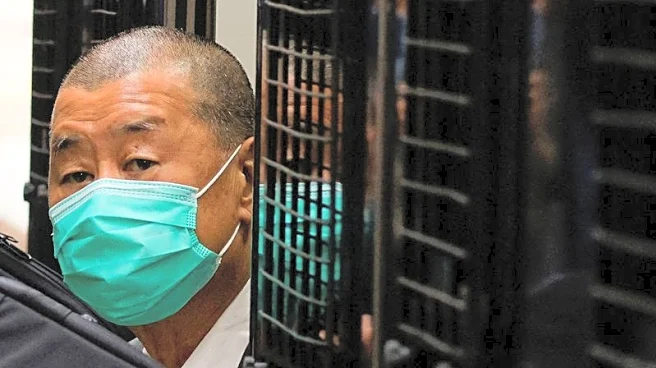What's Happening?
Rep. Ro Khanna, alongside Rep. Thomas Massie, is pushing for the release of files related to Jeffrey Epstein through the bipartisan Epstein Files Transparency Act. This measure aims to make unclassified government files on Epstein public, addressing public demand for transparency. The initiative follows the Department of Justice's announcement that an incriminating client list does not exist, contradicting earlier statements by U.S. Attorney General Pam Bondi. Khanna argues that releasing these files could restore trust in government and provide justice for victims. The act has garnered support from both Democratic and Republican lawmakers, and Khanna plans to circulate a discharge petition to force a vote on the bill.
Why It's Important?
The push for transparency in the Epstein case highlights ongoing concerns about accountability for powerful individuals involved in criminal activities. The release of these files could have significant implications for public trust in government institutions and the justice system. It also underscores the bipartisan effort to address issues of sexual abuse and exploitation, potentially leading to broader discussions on legislative reforms. Victims of Epstein's crimes stand to gain closure and justice, while the political landscape may shift as lawmakers from both parties unite on this issue.
What's Next?
Khanna and Massie plan to gather signatures for a discharge petition to bypass House leadership and force a vote on the bill. They will also appear with Epstein survivors on Capitol Hill to advocate for the release of the files. If the House passes the bill, it could increase pressure on the Senate and the President to act. The upcoming press conference with victims may further influence public opinion and legislative action.
Beyond the Headlines
The effort to release Epstein files raises ethical questions about privacy and the protection of victims' identities. It also challenges the legal system's ability to hold influential figures accountable, potentially leading to long-term shifts in how such cases are handled. The bipartisan nature of the initiative may foster greater cooperation across political divides on issues of justice and transparency.










